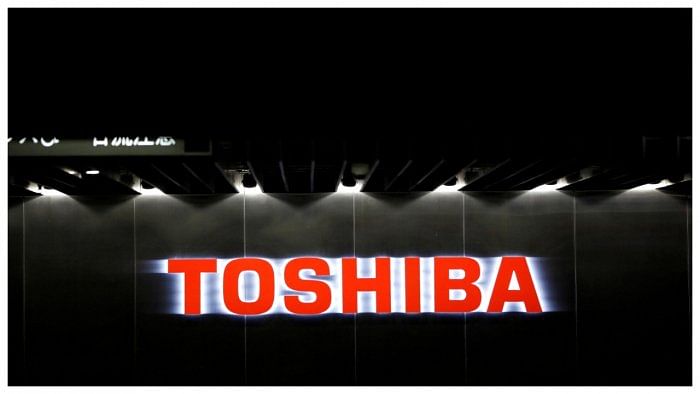
Japanese conglomerate Toshiba on Friday said full-year net profit fell by more than a third due partly to weak sales in electronic devices and other one-off factors.
It also said a planned takeover bid process that is expected to take the company private will likely start in late July.
For the year that ended March, the engineering giant booked a 126.57 billion yen ($940 million) net profit, down 35 per cent on-year, on sales of 3.36 trillion yen, up 0.7 per cent.
Operating profit dropped 30.4 per cent to 110.55 billion yen, mainly because of a contraction of the hard disk drive market, and other one-off factors, Toshiba said.
For the current financial year to March 2024, it forecasts a 110 billion yen operating profit, down 0.5 per cent from the previous year, on sales of 3.2 trillion yen, down 4.8 per cent.
It did not provide a forecast for full-year net profit.
In 2018, Toshiba sold its prized chip unit Toshiba Memory to a group led by US investor Bain Capital.
Toshiba retains a 40 per cent stake in the chip business, which was renamed Kioxia.
In March, Toshiba approved a $15 billion takeover bid by a consortium led by investment fund Japan Industrial Partners.
If the acquisition is successful, it will take the engineering giant private.
The long-awaited move follows years of turmoil for the company, which once symbolised Japan's tech prowess but has more recently faced scandals, financial trouble and high-level resignations.
The JIP-led consortium includes 17 Japanese businesses and six Japanese financial institutions, which are investing in or issuing loans for the deal.
Toshiba, which produces everything from rice cookers to medical equipment and nuclear plants, has been rocked by turbulence since 2015 when a profit-padding scandal erupted.
That led to huge losses, followed by a recovery that brought pressure from new activist shareholders.
Foreign investors have kept Toshiba afloat, but have also pushed for faster growth and a clearer long-term strategy.
In April last year, the firm said it was suspending a plan to split in two after a shareholder vote against the idea and would weigh going private.